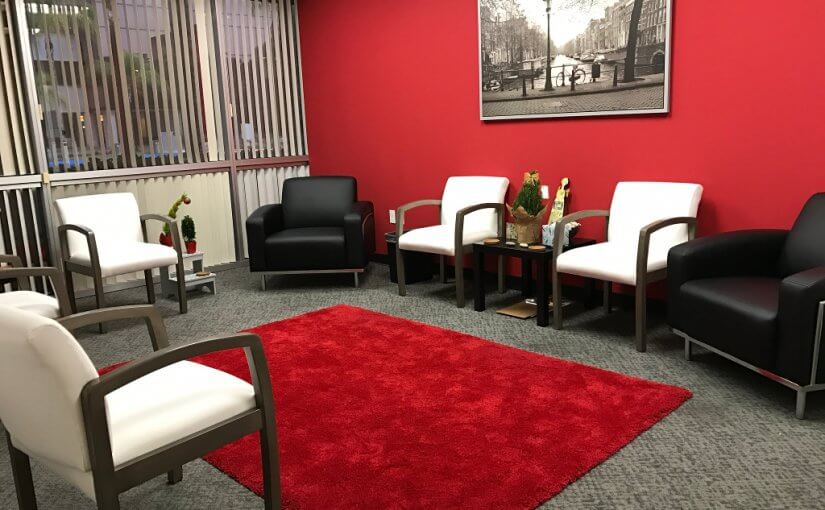At times, Talk Therapy Psychology Center hosts articles and important announcements from our partners and clients. Here is a meaningful post from one of our regular contributors, Joe Cervantes:
“Addiction and recovery often come with some dark times. Maybe you’re depressed and using drugs or alcohol to self-medicate. Or maybe you’ve stopped drinking or using drugs and you are now feeling the weight of the world on your shoulders.
Whether you’re currently struggling with an addiction or in recovery it’s important to remember that it is during these dark times that we grow, learn, and evolve as human beings. It’s in these moments of seemingly endless discomfort and pain that our character is shaped the most and we are provided with a powerful opportunity to get back up on our feet and come out a better person. But as anyone who has experienced darkness knows this is easier said than done.
Here are a few important things to remember whenever you are going through a dark period in your life.
The Darkness is Your Teacher
Ask any successful person and they will tell you the same thing. By overcoming adversity and facing our challenges head on, we become stronger and more resilient so we can take on more complex challenges later in life. We don’t grow as much when we are safe and comfortable, and everything is going our way.
The Dark Thoughts are Not Real
Dark times are often associated with a healthy dose of negative thoughts. But more often than not, these thoughts are not an accurate indicator of your reality. When we are depressed or down, we catastrophize our situation and look for opportunities to bask in our sadness, rather than pick ourselves up. Do not judge or condemn yourself for having negative thoughts. We all have them. Just remind yourself any time you’re feeling down that your thoughts might be trying to play tricks on you.
Darkness Doesn’t Like the Light
Surround yourself with positive people who will help you gain perspective and support you emotionally through your dark times. Stay away from complainers, people who just want to commiserate, people who keep you shackled to your past, and even people who “feel sorry” for you. Instead spend your time with uplifting and cheerful people who will encourage you to look past the darkness, remind you of your strengths, and help you focus on your positive character traits.
Darkness Feeds on Inactivity and Inaction
The best thing you can do during times of darkness is simply move. Force yourself to do something physical or mentally stimulating, even if it’s just a short walk around the block or finishing a puzzle. Not only will your body immediately begin to produce darkness-crushing endorphin but you will also become distracted by your positive activities. Keep moving and you will begin to see progress and momentum build in your life, which will ultimately begin to replace the darkness with the light.
There is Nothing Wrong with You
There is a major stigma around depression in our society that is associated with weakness, mental instability, and one’s overall inability to cope. Although depression can certainly be debilitating, it does not speak to our ability to learn new coping skills or demonstrate strength over our adversities. Everyone feels darkness in their lives to differing degrees. It’s part of the human condition. It’s not the darkness that defines us, but rather it is the manner in which we approach it that matters the most.
Love Yourself Unconditionally Through the Dark Times
We tend to turn against ourselves during tough times and become our own worst enemy but it is in these times of darkness that we need to learn how to become our own best friends. If you’re having a difficult time you need some support. Do not hesitate to turn to family, friends or professionals for the needed support. This is one way you can practice being your own best friend.
And no matter how bad the pain, the sadness, or even the most debilitating depression, the most important thing to remember is that no matter how bad things get, the darkness never lasts.”
About the Author:
Joseph Cervantes is an advocate for the de-stigmatizing of addiction and for the development of progressive treatment approaches. As a writer in the addiction treatment space and former community organizer he has had the opportunity to work with hundreds of individuals struggling with various addictions and mental health issues. Having completed several IOP and inpatient programs himself over the past 20 years, he offers a unique perspective into the treatment and recovery experience through both a “patient” and “practitioner” lens.
At the Talk Therapy Psychology Center, we strive to give you the right tools to cope, the skills to deal with setbacks, and the ability to believe in, and rely on your own strengths. Sign up now for private, one-on-one sessions, or join our popular Intensive Outpatient Program (IOP).
(858) 205-2490
www.talktherapycenter.com














